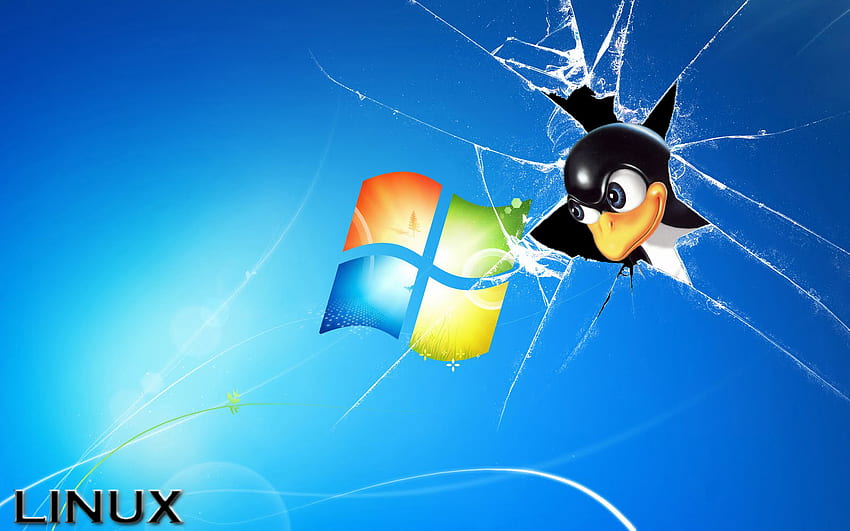Linux has become increasingly popular among programmers and web developers in recent years. It offers various features, making it a better choice than other operating systems for programming and web development.
This article will explore the reasons why Linux is better for programmers and web developers. We will also compare Linux and Windows to help you make the best choice.
Linux is a favorite choice of programmers and developers. Let’s discover six reasons why Linux is better for programming and web development below.
1. Open Source
Linux is open-source software. It allows developers to use and distribute it freely. A culture of collaboration and innovation has formed within the Linux community. Individuals and organizations around the world can develop and enhance the operating system.
Linux has a vast community of developers. Many experienced developers work on it daily, fixing bugs to make it more secure and less buggy. Regular updates help Linux software run smoothly.
In addition, Linux provides various collections of open-source software libraries and tools. Therefore, programmers can easily develop software applications.

2. Performance
Linux also offers consistent and reliable performance. It ensures your development environment is stable and predictable.
This is particularly important for web developers who cannot afford any application downtime or errors. Factors contribute to Linux’s high performance.
Kernel design
The Linux kernel is lightweight, fast, and effective. These characteristics are especially critical for programmers and web developers who must run multiple applications simultaneously.
Process scheduling
Linux’s process scheduler is highly configurable. It can prioritize processes based on their importance and allocate system resources, such as
- CPU time
- Memory
- I/O bandwidth
Memory management
Linux’s memory management system is highly efficient. It can handle large amounts of memory with minimal overhead.
Besides, virtual memory allows the operating system to allocate memory to processes regardless of limited physical memory.
File system performance
Linux supports diverse file systems, including high-performance EXT4 and XFS file systems. These file systems provide fast access and handle large file sizes and high file I/O rates.
Networking performance
Linux’s networking stack can handle significant network traffic with minimal overhead. It supports high-speed networking technologies, including Infiniband and 10 Gigabit Ethernet. Therefore, it is ideal for high-performance tasks.
3. Secure

When it comes to programming and web development, security and stability are two essential factors that cannot be overlooked. Linux dominates in both areas.
Less Vulnerable to Malware and Viruses
Linux is less prone to malware and virus attacks thanks to its operating system. It has a robust permission system. It restricts user access to sensitive system files, making it challenging for attackers to compromise the system.
In addition, Linux users can also install antivirus software. This extra security feature adds another layer of protection to your system and data.
Less Likely to Crash or Freeze
Linux stands out to be more secure and stable compared to other operating systems. It can handle heavy workloads efficiently, making it more resistant to crashes and freezes.
Regular Updates and Patching
Linux receives regular updates and patches that fix security vulnerabilities and bugs. These updates are crucial for maintaining a secure and stable system.
4. Faster Software Updates

Linux provides faster software updates compared to other operating systems because the Linux community is a collaborative model. Developers worldwide can contribute to developing the operating system and its associated software.
Since no centralized authority controls the development process, updates are released more frequently, sometimes daily or weekly.
Linux has an open-source nature. Anyone can freely modify and improve it. Therefore, the developer community can quickly identify and fix security issues.
Linux has package managers like Apt, Yum, and Pacman. These package managers provide easy access to a vast repository of software applications.
They automate the process of installing, updating, and removing software. Therefore, your system is sure to be always up to date with the latest software.
5. Programming Friendly
Linux is a popular software for programmers and developers. Here are some of the factors that make Linux friendly.
Availability of programming tools
A good Linux distro for programming should have the necessary programming tools, libraries, and software. Linux is installed with a variety of programming tools, such as GCC, GDB, and Git.
Bash scripting

Bash is a built-in shell of Linux. It enables developers to automate tasks and make the operating system more efficient. Bash scripts are easy to write and debug, which makes them a popular choice among developers.
Wide support for programming languages: Linux supports major programming languages, such as C++, Python, Java, and Perl.
This feature ensures that developers use their preferred language to write code.
Flexibility and customization
Linux is highly customizable. Users can customize it to meet their requirements. They can tailor their operating system to optimize their workflow, making it more efficient and productive.
6. Great Community Support
Linux has a vibrant user and developer community. Users can seek help from the community in case of any issues and receive quick responses.
The open-source nature of Linux programming also fosters collaboration and code-sharing among developers.
Developers can share their code and collaborate on projects in online communities and platforms such as GitHub, GitLab, and SourceForge.
Besides, the Linux programming community is highly supportive. They provide feedback, guidance, and assistance to other developers. Developers may ask questions about their projects and receive comments.
This support and feedback are invaluable to developers, especially those just starting with Linux programming.
Linux vs. Windows: Which one is better?

Linux and Windows are two famous operating systems with their own unique characteristics. Yet, Linux is still more reliable and preferable to Windows.
Let’s take a deep dive into the key differences between these two operating systems to see why Linux is the better choice.
Linux is less vulnerable to malware and viruses. It has a more robust permission system, which can prevent unauthorized access to files and programs.
Meanwhile, Windows has a more extensive user base. Therefore, it is a more attractive target for hackers.
Linux is a more cost-effective option than Windows because it is free. Windows requires a license fee. It can be a significant expense for some users.
Windows has a more friendly interface. It is familiar to most people and focuses on simplicity and ease of use. While Linux typically requires more knowledge and technical ability to navigate.
However, some Linux distributions like Ubuntu have significantly improved their GUI. It can now compete with Windows in terms of aesthetics and functionality.
Linux is fast and efficient. Especially when it comes to running servers or performing complex tasks, it also has a smaller system footprint, requiring less storage space and memory.
In contrast, Windows can be more resource-intensive. It may require more powerful hardware to run smoothly.
Conclusion
We have provided some reasons why programmers, engineers, web developers, etc. choose Linux for their tasks. It offers high-quality performance, excellent community support, and faster software updates. It is also highly secure, open-source, and friendly.
Moreover, Linux is also a better choice than Windows. It is free to use and has a lower total cost of ownership than Windows. Linux is also customizable, highly secure, and stable.
